A conversation with Jabulani Sigege and Roderick Laka of Machine_ on using creativity and insights to create solutions for businesses
In a new interview series, I spoke with two creative leaders from South Africa: Jabulani Sigege (Executive Creative Director at Machine_) and Roderick Laka (Creative Group Head - Art at Machine_)
In a new interview series, I will be having conversations with people from creative teams, agencies, and studios across Africa on the work they do, how they go about it, and its impact.
If you have seen Spotify South Africa’s ‘Como Esta It’ or Spotify Nigeria’s ‘Loudly Nigerian?’ TVCs. Were you caught up in the obsession of watching “Jack Ryan”? Then you have seen and interacted with the work of my guests for today.
For this debut edition, I spoke with two creative leaders from South Africa: Jabulani Sigege (Executive Creative Director at Machine_) and Roderick Laka (Creative Group Head - Art at Machine_).
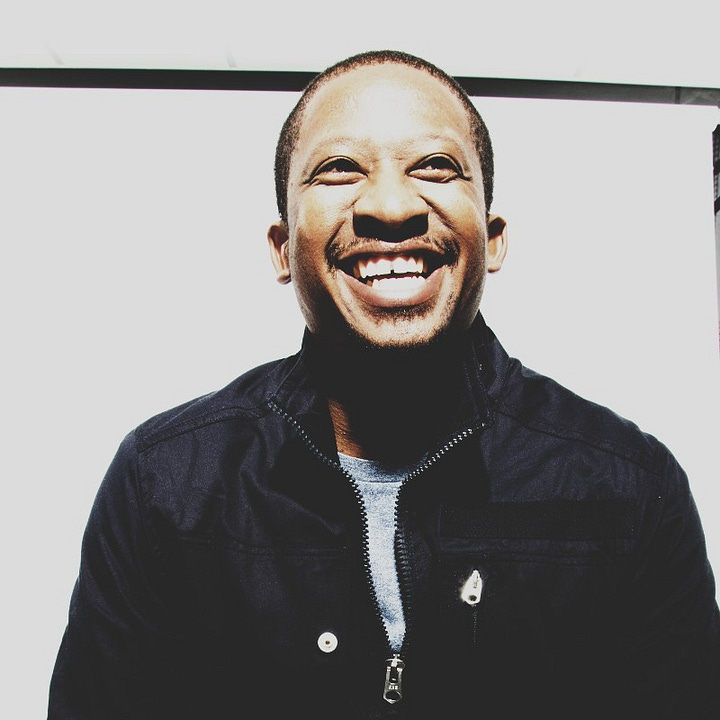
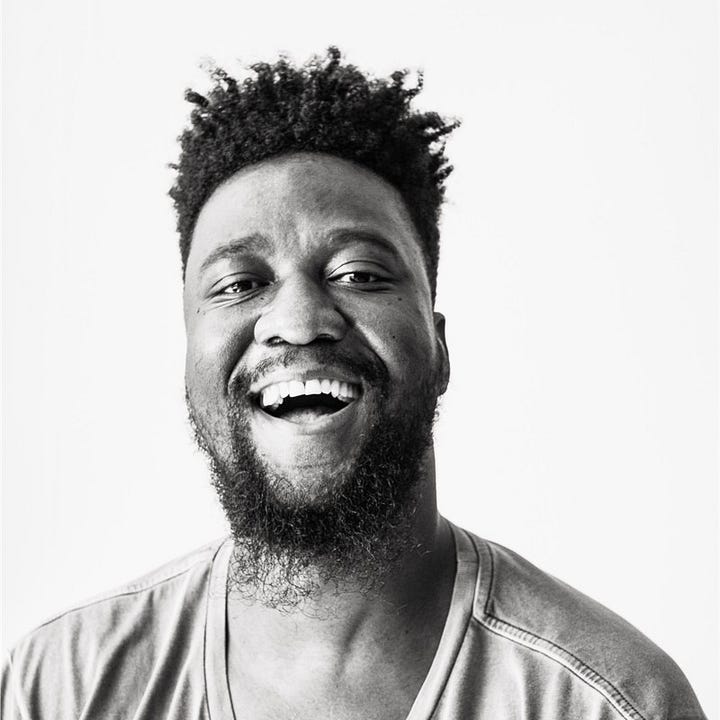
With a roster of global and local clients such as Spotify, Prime Video, Heineken, PepsiCo, Nutun, DirectAxis and Sanlam and Sanlam Reality, Machine_ is an award-winning creative-solutions agency with over 100 people based in Cape Town and Johannesburg.
Jabulani tells me: “We call ourselves a creative-solutions agency, not just an advertising agency. We create solutions to problems that brands and businesses may have and it doesn't always come in the form of an ad. For example, in our work for Gangs of Lagos, we created a title treatment to reflect what the show is about.”
Though Machine_ is a purely South African agency, it has an international connection and access because it is a part of Publicis Groupe, the fastest-growing global network. “While we have got our feet in South Africa, we have got a view of the continent and world as well,” Jabulani says.
The Machine_ Philosophy and Ethos
It all starts with an Insight
Creating solutions for clients often requires intuition and gut feelings, but for them at Machine_, everything starts with an insight. “One of the biggest things we try to leverage is insights. We're big on insights because this helps us to effectively reach our target audience, so that we’re speaking to the right people,” Roderick says. “We need to know what they are feeling, what their experiences are, and where we can meet them in their daily lives.”
Finding the pivotal points where to intercept consumers in their daily lives is important and helps the people working on a brief include the brand they are working on in the consumers’ lives. For them at Machine_, mining these insights is how they are able to create impactful and creative solutions that solve the client’s problem and touch the consumers at every point in their connected world.
Never Afraid
The culture at Machine_ is underpinned by a strong mantra: Never Afraid. “We have an internal philosophy; we're never afraid. This translates to never being afraid to solve problems. It also means that we are never afraid to say no in order to make better solutions. We are never afraid to say yes to challenges,” Jabulani says. “Never be afraid to push yourself because that's how you get better each and every day. You will only grow when you do something that scares you, frightens you, and pushes you.”
Solving unique challenges for global and local brands
Choosing a favourite project is usually a tough one for creatives, so for Roderick, it is easier to talk about brands he enjoys working with. “Our work for Spotify and Prime Videos are some of my favourite projects because they came with unique challenges that were not only situated in South Africa but touched on a global challenge with an African context to it,” Roderick says.
For Jabulani, his favourite project is an ongoing project for a local company. “We're still cultivating the name and sorting out the contracts but we've been doing some work for it. It's a local non-alcoholic beverage company and the challenge we're trying to solve is how to make it a relevant and relatable brand in a market that has established brands like Coca-Cola,” he says. “Because it is South African does not mean people will automatically care about it. We've to make them care about it and make them feel like it's a part of their life and journey.”
Read Also: Kelvin Shani: On leading and growing an animation studio and his love for art and music — #010
Getting into advertising and using creativity to touch people's lives
Advertising is about using creativity to create solutions to problems. “I got into advertising because my brain was always on the go. I enjoy the fact that no two days are ever the same even though it can be both a blessing and a curse because sometimes it can get really crazy,” Jabulani says.
“I have to think of things in a way, shape, or form that didn't exist before, that is, making them manifest from a thought in my head and seeing other people react to it.”
He also added, “I am constantly curious because the moment you start to think you know it all is the day you start to stagnate. I am also interested in people because what we create is for people.”
Roderick is obsessed with creating solutions that can help someone in some way. “For me, it’s people first. I wake up every day with one mission: to change someone's life through creativity and it’s the thing that makes me relentless and obsessed with creativity because I don't think I have achieved that goal or will ever until I leave this earth,” he says.
Touching people’s lives doesn’t always require doing something grand. It can be in a small way. “Someone can be having a rough day and get their mood lifted by interacting with something I was a part of creating. This can set them up for the rest of the day or week,” he explains. “It can also be in the form of the brands we work with giving people access to something they would not have had access to without the project.”
Obsessing with people and creating solutions for them
Obsession with people and creating solutions for people is something Roderick looks out for in other creatives. “You need to have an interest in humanity and how your creativity can change it. You need to be selfless and aware of people and what's going on. You should not be so caught up in your own world. You need to be able to live outside your world and bring yourself into it. It's a tough line to walk but once you find your balance, that's where the magic happens,” Roderick says.
Jabulani tells me having a never ceasing hunger; the hunger to be better, the hunger to learn more, and the hunger to make a difference in people's lives irrespective of the number of people is something he looks out for. “We underestimate the impact that a thought or single action can create. A single action can create a ripple effect. Every individual has a different perspective/view of the world and if you're able to impact or influence someone else's view for the better, you've done an amazing thing,” he explains.
Share your thoughts and believe in yourself
Roderick says he struggled with saying his mind while starting out but over the years he has learnt that “there's no wrong answer when it comes to creativity.” As a creative, you should never be afraid to share your thoughts. “Never be afraid to bring your voice to the table. Your unique view can impact or spark a change in someone else’s life,” he explains. Roderick believes that “A lot of creatives have themselves as a barrier to their greatness.” For him, sharing your thoughts is being selfless and how you bring yourself to the work you do each day.
Jabulani advises creatives to believe in themselves and trust their guts but they should also be open to collaboration. “Question everything because only then will you be able to do the things that are deep which allow you to make connections with other people,” he says. It is also important to always ask for help and bounce ideas off people when necessary.
As creatives, it is okay to face self-doubt or imposter syndrome. “You will find that a lot of the people who did great works had points where they battled imposter syndrome. The people who don't have imposter syndrome are the actual imposters.”
He believes that anyone who hasn’t dealt with imposter syndrome is not really good at what they do because they are not questioning whether what they do is good enough.
Read Also: How To Build Meaningful Relationships As A Creative
Tapping into our unique identity and cultures as Africans
When working for global organisations, it is important to tap into our unique history and culture. Jabulani says “Something South Americans and Asians have done over the years with their work is that they tap into their identity and culture, which make their work very distinctive. They don't allow a multinational brand to come in and change that. They don't let the brand dictate their culture, that is, they don’t try to ‘Westernise’ their culture. They dictate how the brand fits into their own world. They let the brand know how they can talk to their people, and that's how success happens.”
The problem with how we approach this in Africa is that we end up creating poorer versions of Western views instead of embracing what we know. “Some of our cultures get appropriated by the West because they know that they are unique and are not like anything else in the world. For example, African patterns get used by multinational fashion brands and carry really expensive price tags because of how unique the patterns are,” Jabulani says.
“We forget that it’s not only minerals we have. We also have cultures and we have got to utilise them, own them, and not change them.”
Roderick says we underestimate ourselves a lot. “In Africa, we have so much going on for us but we underestimate ourselves. We have different things and nuances we can tap into that no one except Africans understands. We are so diverse. Asians, Americans, Europeans, and other cultures have theirs and they tap into theirs so we need to tap into ours too. We underestimate ourselves a lot.”
Creating work with purpose and changing lives
When asked what brand(s) he would love to work with in the near future, Roderick says, “I want to work with a lot of non-profit organisations across Africa because that's where I can realise my goal to change people's lives. I like doing work with purpose and non-profit organisations allow me to do that.”
As for Jabulani, he wants to work for brands in the sporting category like football or wrestling. “I think a local sports team like Orlando Pirates or an international one like PSG. It will also be fun to do some work for WWE too.”
Getting seen, getting positive responses, and the day-to-day experiences
While awards and recognition are great, Jabulani says he finds satisfaction in the ordinary stuff. “I work from the Cape Town office and it has been interesting to see how things have changed over the years. The culture is still there but everything - the kind of work we do for brands and how we go about it- is now refined.”
“It is exciting to see our work get mentioned alongside the works of other international brands. Our work doesn’t just get seen, people actually like them and respond positively to them,” he adds.
For Roderick, awards come and go, so he’s excited about the day-to-day experiences, the work the teams do, hearing people talk about it, and how it can change someone's life.


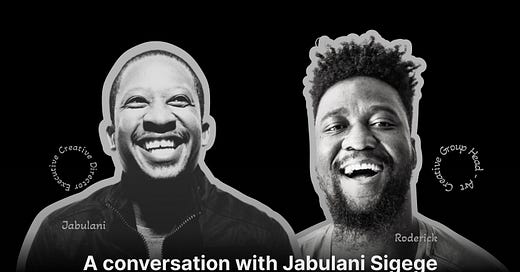




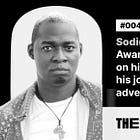
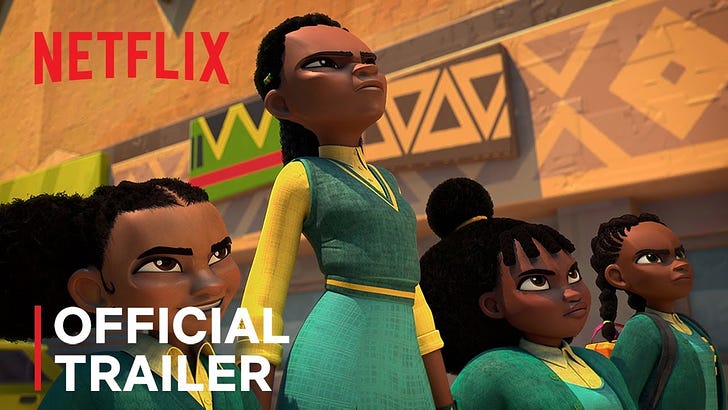
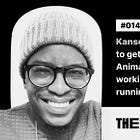
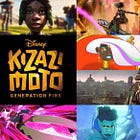
Interesting interview.